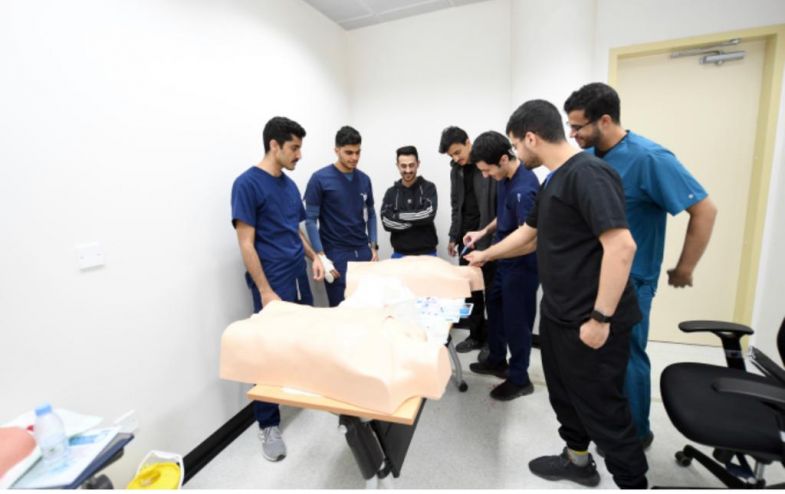
Staff training, benchmarking and quality assurance are key to the Saudi university’s success in undergraduate medical education
Excellence is vital in ensuring that King Saud University’s (KSU) graduates are well equipped to face the working world. The KSU College of Medicine, the oldest of its kind in Saudi Arabia, has more than 1,500 students and 600 faculty. In 2010, it became the first college to gain accreditation from the Saudi National Center for Academic Accreditation and Evaluation.
Continuous evaluation and staff development are key to providing high-quality medical education and introducing new innovations, says Mona Soliman, head of the medical education department at KSU in Saudi Arabia.
“We need to maintain the quality of the curriculum we are delivering right now and ensure we keep up with innovations and continuous development in medical education,” she says. Evaluation and benchmarking are important tools to ensure the department achieves its ambitions.
The first step in ensuring excellence is to evaluate courses and act on students’ concerns, says Soliman. “We observe all 33 courses of the undergraduate curriculum in terms of quality by reviewing the year-end student surveys,” she explains. From those reports, the university can identify trends in students’ comments and the quality of teaching – and address any concerns or conduct an extensive review of the course.
Often, course quality and teaching hinge on faculty experience and expertise, and so the university focuses on faculty support. “We are continuously delivering faculty support for our curriculum, such as a series on how to become a problem-based facilitator” in addition to the “rich schedule for faculty development”, Soliman says.
The university’s academic quality unit also monitors faculty performance to ensure high-quality teaching. “One of the challenges is maintaining excellence with this very large number of faculty,” says Soliman. “When we have newcomers, we work on developing their skills and how to be part of this continuously developing area of medical education.” The university runs mandatory workshops in medical education to equip faculty with the skills required to offer students excellent teaching.
Ultimately, an important metric of excellence is benchmarking students and graduates against their peers at other institutions. “Another element to ensure our excellence in medical education is that we always look for external evaluation of our performance,” Soliman says. There is a non-compulsory test for students enrolled at medical colleges in Saudi Arabia, which many KSU students take part in, she explains. “It is very helpful for us because we receive a detailed analysis of our students’ performance, and it’s very helpful for the college to know which areas need more work.”
Similarly, the Saudi Medical Licensing Exam, which is only for graduates, “reflects how we are doing with graduates on an international level and how our graduates are performing”, Soliman says.
The field of medical education is constantly developing, and institutions need to introduce innovations while maintaining the quality of their teaching. “We are trying to keep the balance between the stability of the current curriculum, the introduction of innovations in medical education and updating our curriculum,” Soliman says.
Find out more about the College of Medicine at King Saud University.




